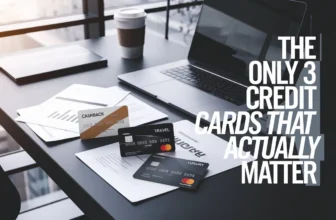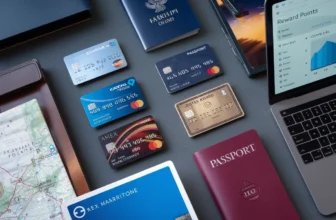
5 Ways to Improve Your Credit Score Without a Credit Card
Disclosure: This site may contain some affiliate links, but not every link. If you sign up or make a purchase through these links, I may receive a commission at no additional cost to you. However, all opinions are my own.
In the financial landscape, your credit score is like a report card that lenders use to gauge your creditworthiness. A good credit score can open doors to favorable loan terms, lower interest rates, and various financial opportunities. However, achieving a high credit score doesn’t always require the use of credit cards. In this article, we’ll explore five effective ways to boost your credit score without relying on credit cards.
Understanding the Basics of Credit Scores
Before diving into strategies, it’s crucial to understand what a credit score is and how it’s calculated. Your credit score is a numerical representation of your creditworthiness, typically ranging from 300 to 850. Factors such as payment history, credit utilization, length of credit history, types of credit in use, and recent credit inquiries contribute to this score.

The Impact of Credit Scores on Financial Life
Your credit score isn’t just a number; it significantly influences various aspects of your financial life. From securing a mortgage to obtaining favorable interest rates on loans, a good credit score is a valuable asset. Conversely, a low credit score can lead to higher interest rates, limited loan options, and challenges in securing housing or employment.
Common Myths About Credit Scores
Dispelling myths is crucial for a realistic approach to credit improvement. Contrary to popular belief, checking your credit score does not harm it, and closing old accounts may negatively impact your score. Addressing these misconceptions helps in adopting effective strategies.
How to Obtain Your Credit Report
Before making any improvements, it’s essential to know where you stand. Obtain your credit report from major credit bureaus and review it for accuracy. Discrepancies in your report can be a barrier to a higher credit score.
Identifying and Disputing Errors on Your Credit Report
Errors on your credit report can drag your score down. Take proactive steps to identify and dispute inaccuracies with the credit bureaus. This might involve providing documentation to support your case.
Paying Bills on Time
One of the most impactful ways to enhance your credit score is by consistently paying bills on time. Timely payments demonstrate responsible financial behavior and positively contribute to your credit history.
Reducing Credit Card Balances
While this article focuses on credit improvement without credit cards, if you have existing balances, reducing them is crucial. High credit card balances relative to your credit limit can negatively affect your credit score.
Diversifying Your Credit Mix
Having a mix of different types of credit, such as installment loans and revolving credit, can positively influence your credit score. Aim for a diverse portfolio of credit to showcase your ability to manage various financial responsibilities.
Avoiding Opening Too Many Credit Accounts
Opening multiple credit accounts within a short timeframe can be perceived as risky behavior. Limit unnecessary credit applications to prevent potential negative impacts on your credit score.
Negotiating with Creditors
If you’re facing financial challenges, don’t hesitate to negotiate with creditors. They may be willing to work with you on revised payment terms or settlements. Open communication can prevent further damage to your credit.
Seeking Professional Help
Credit counseling services can provide valuable guidance in managing debt and improving your credit. When considering professional assistance, research reputable organizations and understand their fees and services.
The Long-Term Commitment to Credit Health
Improving your credit score is a marathon, not a sprint. Be patient and committed to the process. Consistent positive financial habits will gradually reflect in your credit score over time.
Monitoring Your Progress
Regularly monitor your credit score and the factors influencing it. Many online tools offer free credit monitoring services, allowing you to track improvements and identify areas that still need attention.
Conclusion
In conclusion, enhancing your credit score is a realistic goal achievable through strategic financial habits. By understanding the fundamentals, disputing inaccuracies, and adopting responsible credit management practices, you can make substantial progress without the need for credit cards. Remember, it’s a journey that requires commitment and patience, but the rewards are well worth the effort.
FAQs
Can I improve my credit score quickly?
While some improvements can happen relatively quickly, significant changes take time and consistent effort.
Is it better to pay off all debts at once or over time?
It depends on your financial situation. Paying off high-interest debts first may be more beneficial.
Do closed accounts affect my credit score?
Closed accounts can still impact your credit history and, consequently, your credit score.
How often should I check my credit score?
Regularly monitoring your credit score is advisable, with many tools offering free monthly updates.
Can I improve my credit score without professional help?
Yes, with dedication and proper information, individuals can often improve their credit scores without professional assistance.






